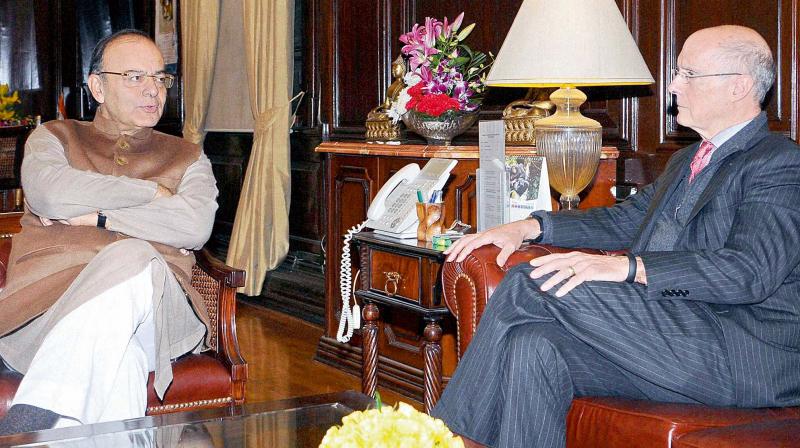Budget plans disrupted
Demonetisation has complicated matters regarding revenue and asset sales.

New Delhi: Prime Minister Narendra Modi's surprise decision to scrap high-value banknotes has upset preparations for next year's budget because of the resulting disruption to growth, revenues and asset sales, two government sources said.
Mr Modi scrapped Rs 500 and Rs 1,000 banknotes on Nov. 8 in a bid to flush out cash earned through illegal activities, or earned legally but never disclosed to the taxman.
Officials fear the move will slow economic activity for much longer than originally expected, as millions of people continue to queue at banks and ATMs for cash and companies struggle to pay wages and suppliers.
“We had thought the demonetisation will be a game changer," said one official, who has direct knowledge of budget preparations, adding the central bank should have taken more steps to ease the pain of people.
“We still have to start work on the budget.” Union finance minister Arun Jaitley is expected to present the annual budget for 2017/18 on February 1.
The official said the cash crunch had hit sectors like construction, agriculture and auto makers, hurting tax receipts and complicating the government's asset divestment programme.
Two-wheeler and commercial vehicle sales declined by over 10 percent in November from a year ago, with weakness in the retail, gems and jewellery sectors also impacting factory gate duty receipts.
The government is likely to miss its annual target of raising '56500 crore ($8.4 billion) through the sale of stakes in companies by a wide margin due to uncertainty in the markets, said the official.
The government has so far raised less than half of the target for the whole fiscal year. N.R. Bhanumurthy, an economist at National Institute of Public Finance and Policy (NIPFP), a government-funded think tank, said revenue collections could fall by up to '35000 crore ($5.18 billion) this year.
“We are facing very uncertain times,” said Mr Bhanumurthy. “The government should weigh the impact of demonetisation on growth and revenue.” Another finance ministry official said economic growth for the current fiscal year to March 2017 could fall below the central bank’s revised estimate of 7.1 per cent, putting pressure on fiscal deficit targets.
The government has partially deferred a hike in wages of its 1 crore employees and pensioners to cut its spending bill.
Mr Jaitley, however, still hopes to hit his deficit goal of 3.5 per cent of gross domestic product in the current fiscal year, said a source familiar with his thinking.

